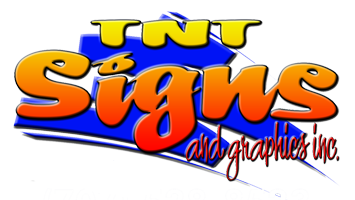Navigating the maze of outdoor signage regulations can be a daunting task for any business owner. At TNT Signs, we understand the importance of not only creating eye-catching and effective signs but also ensuring that they comply with local, state, and federal regulations. This guide is designed to help you, the business owner, understand the complexities of signage laws and how to ensure your signs meet all legal requirements.
The Importance of Compliance
Before diving into the specifics, it’s crucial to understand why compliance with signage regulations is important. First and foremost, these laws are in place to ensure public safety and welfare. They also aim to maintain an aesthetically pleasing environment and prevent visual clutter. Non-compliance can lead to fines, legal action, and the requirement to remove or modify your signage, which can be costly and detrimental to your business’s image and operations.
Understanding Local Zoning Laws
Signage regulations vary significantly from one jurisdiction to another. Local zoning laws often dictate the type, size, location, and illumination of signs that businesses can display. For instance, a sign that is permissible in a commercial zone may be prohibited in a residential zone. Therefore, the first step in ensuring compliance is to understand the zoning laws in your area.
Permitting Process
Most localities require a permit before installing any outdoor signage. This process typically involves submitting detailed plans of the sign, including its design, dimensions, and proposed location. The local planning department reviews these plans to ensure they comply with zoning laws. It’s vital to allow sufficient time for this process, as it can take several weeks or even months.
Size and Height Restrictions
Many areas have specific restrictions on the size and height of signs. These regulations can depend on various factors, such as the type of road the sign faces or the zone in which your business is located. Understanding these restrictions is crucial to avoid investing in a sign that may not be legally permitted.
Illumination and Digital Signage
If you’re considering an illuminated sign or digital display, be aware that there are often additional regulations governing these types of signs. Restrictions can include the brightness of illumination, hours during which the sign can be lit, and how frequently the message can change on digital signs.
State and Federal Regulations
In addition to local laws, state and federal regulations can also impact signage. For example, the Americans with Disabilities Act (ADA) includes requirements for signage to ensure accessibility for individuals with disabilities. This can affect signs like parking, restroom, and entryway markers. On the state level, certain signs may require compliance with environmental and electrical standards.
Navigating Historic Districts and Homeowners Associations
If your business is located in a historic district or an area governed by a homeowners association (HOA), there may be additional layers of regulations. These areas often have strict guidelines designed to preserve the historical or aesthetic character of the neighborhood. Compliance in these zones may require adhering to specific design standards or obtaining approval from a review board.
Tips for Ensuring Compliance
- Do Your Research Early: Before designing your sign, research the applicable regulations in your area. This can save you time, money, and headaches down the line.
- Consult with Professionals: Consider hiring a professional sign company or consultant who is familiar with local signage laws. At TNT Signs, we have the expertise to navigate these regulations and can assist you in the design and permitting process.
- Plan for the Permitting Process: Allow ample time for obtaining permits, especially if your sign requires approval from multiple departments or agencies.
- Keep Up with Changes: Signage laws can change, so it’s important to stay informed about any new regulations that may affect your signs.
How TNT Signs Can Help
At TNT Signs, we’re not just about creating signs; we’re about ensuring your sign strategy is effective, impactful, and compliant. Our team is well-versed in the complexities of signage regulations and can guide you through the entire process, from design to installation. We offer a comprehensive range of services, including:
– Consultation and Design: Our experts work with you to create signs that not only capture your brand’s essence but also comply with all legal requirements.
– Permit Acquisition: We can handle the permitting process on your behalf, leveraging our experience to streamline approvals.
– Installation: Our professional installation team ensures your sign is safely and correctly installed, adhering to all regulatory standards.
Navigating the intricate world of signage regulations doesn’t have to be a solo journey. With TNT Signs, you have a partner every step of the way, ensuring your signage is not just a marker for your business but a compliant and strategic asset. Together, we can create signage that stands out while standing up to regulations.

